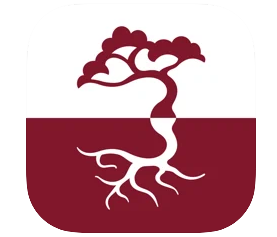The Supplements Phubbers Need
Today, people can’t seem to leave their tech gadgets behind as they have become a necessity in our lives with modern science and technology advancement.
We face the computer screen when we are at work; mobile phone during lunch and/or after work; sometimes when you are back home, you reply to your emails or browse the internet through your tablet or laptop . Some are even glued to their mobile phones while walking and crossing the road.
Have you ever thought about the amount of hours we spend on tech gadgets in a day? It’s an average of 10 hours! It is no surprise that people with short-sightedness are getting younger and younger.
Phubbing (or phone snubbing) and staring on screens can cause eye strain, blurry vision, difficulty focusing at a distance, dry eyes, headaches, neck, back and shoulder pain.
Improving Your Nutrition
It is unavoidable to face the computer screen when we work. That’s the main tool at work, right? As you strain your eyes in these long hours, your eyes will need sufficient nutrients to function optimally. Pump yourself with nutrients like DHA fatty acid that helps strengthen and lubricate the eyes, Vitamin A that prevents dry eye and night blindness, Vitamin Bs which protects the eyes’ nerve cells, Vitamin C and E that shield the retina from damage, and other important eye-protecting minerals such as calcium, chromium, molybdenum, zinc and selenium.
All these nutrients can be easily obtained via a balanced diet, consisting of wholegrains, colourful fruits and vegetables, high protein foods, dairy products and some good fats.
What about Health Supplements?
Functional components such as lutein, zeaxanthin and anthocyanin are among the most popular and scientifically proven to support maintenance of eye health, which can be found in natural food sources or from supplements. Lutein and zeaxanthin belong to the carotenoid family, and are found in a variety of fruits and vegetables such as broccoli, spinach, citrus fruits, pumpkin and corn. These functional compounds effectively filter blue lights emitted from digital devices that can cause retinal damage, and also possess excellent antioxidant properties to ward off harmful free radicals.
Dubbed as the “European Blueberry”, bilberry contains 15 types of anthocyanin compounds, and was famously consumed by the British pilots during the World War II to enhance their night vision. Anthocyanin helps the eyes adapt to light changes, and its antioxidant power is 50 times higher than Vitamin E, which is beneficial for protecting the tiny blood vessels that supplies oxygen and nutrients to the eyes. Compared to the normal blueberry, wild bilberry contains 10 times more anthocyanin. Can’t get any wild bilberries at the supermarket? Not a problem at all! Biotta Wild Bilberry Juice contains 360g of wild bilberries in each bottle, and helps to relieve eye fatigue and improve one’s eyesight! Carrots and other orange-coloured fruits and vegetables promote eye health and protect vision. Beta-carotene, a type of vitamin A that gives these foods their orange hue, helps the retina and other parts of the eye to function smoothly. Instead of eating carrots, you can try Biotta Carrot Juice that uses 100% premium organic carrots. With its high vitamin A content, regular consumption of Biotta Carrot Juice not only promotes healthy eye function, it also enhances skin health. It is a valuable source of antioxidants as well that benefits the immune system.
Goji berries can be a great addition into your diet. It is said that goji berries have been used in traditional Chinese medicine for over 2,000 years. Goji berries are beneficial for vision because of their high levels of antioxidants (especially zeaxanthin), which can help stop damage from UV light exposure, free radicals and other forms of oxidative stress.
If you’re seeking for rather Oriental based supplements, you may consider Qi Ju Di Huang Pills (杞菊地黃丸). Eu Yan Sang’s Qi Ju Di Huang Pills nourishes the kidneys and liver, and is suitable for people who has dry eyes and blurry vision. Its ingredients include rehmannia glutinosa, dogwood, Chinese yam, moutan, poria, alisma, goji berries and chrysanthemum. Nourishing, isn’t it?
Good Lifestyle Habits
There are three key points when reading or staring at a screen: distance, brightness and time. Limit your screen time, or rest every 30-40 mins of screen time, and ensure ample lighting rather than being in the dark. It is highly recommended to go for eye examination once or twice yearly to get a comprehensive update on your current eye health!
Remember, prevention is always better than cure!




